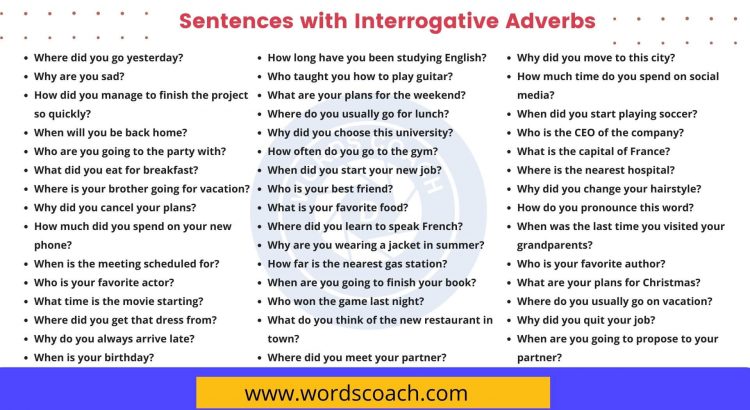Here are 100+ sentences with Interrogative Adverbs:
Category: Adverb
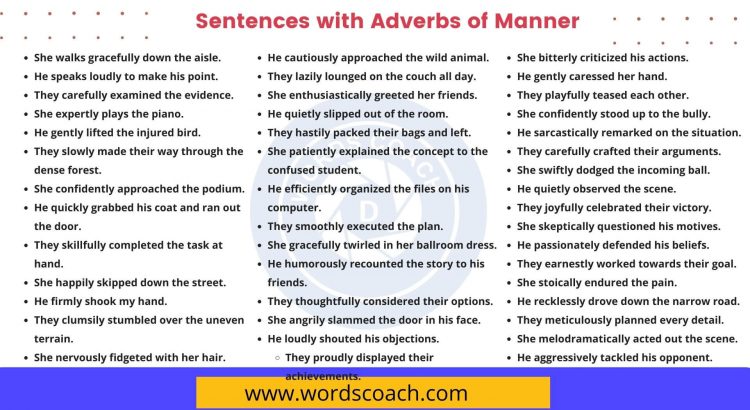
100+ Sentences with Adverbs of Manner in English
Here are 100+ sentences with adverbs of manner:
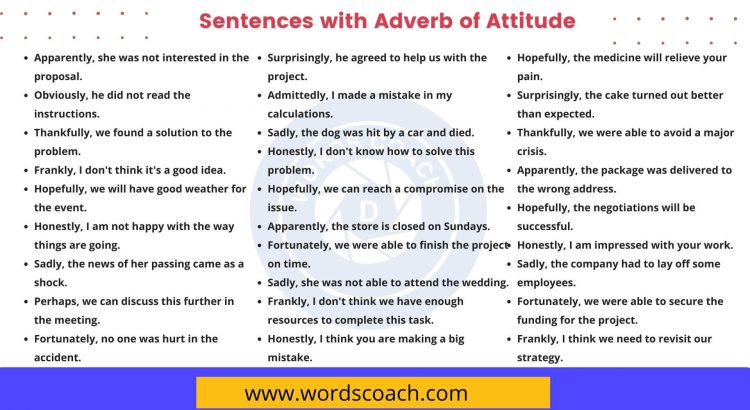
100+ Sentences with Adverb of Attitude in English
Here are 100+ sentences with adverbs of attitude:
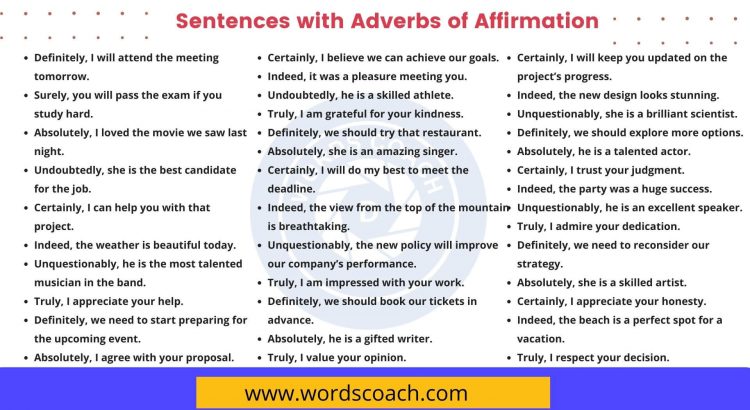
100+ Sentences with Adverbs of Affirmation in English
Here are 100+ sentences with Adverbs of Affirmation.
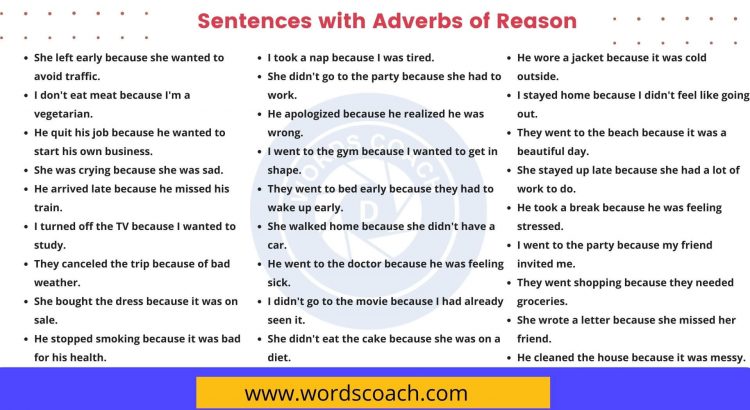
100+ Sentences with Adverb of Reason in English
Here are 100+ sentences with Adverb of Reason:
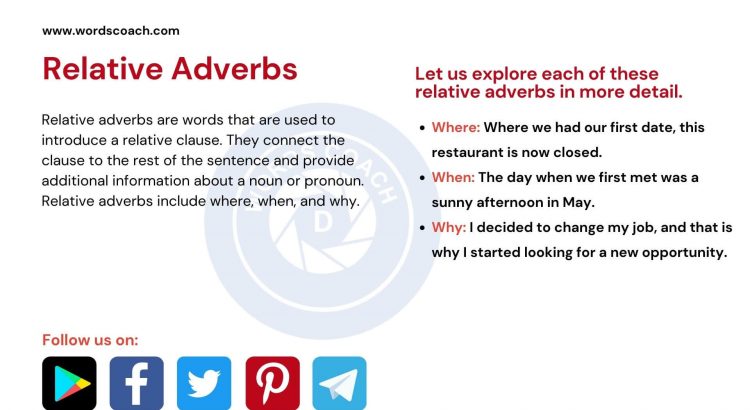
Relative Adverbs
Relative adverbs are an important part of the English language. They are words that are used to introduce a relative clause, which is a dependent clause that provides additional information about a noun or pronoun. Relative adverbs are used to connect the clause to the rest of the sentence and provide context and detail.
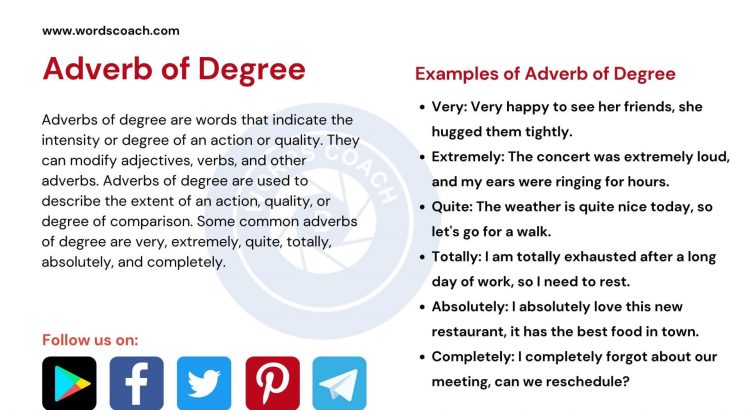
Adverb of Degree
Adverb of degree are words that indicate the intensity or degree of an action or quality. They can modify adjectives, verbs, and other adverbs. Adverbs of degree are used to describe the extent of an action, quality, or degree of comparison. Some common adverbs of degree are very, extremely, quite, totally, absolutely, and completely.
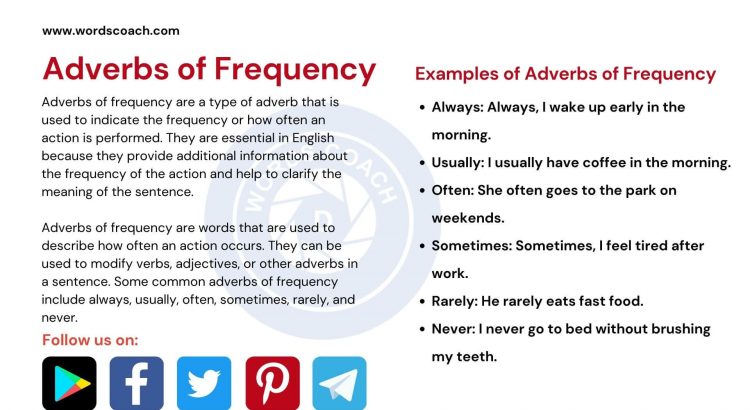
Adverbs of Frequency
Adverbs of frequency are words that are used to describe how often an action occurs. They can be used to modify verbs, adjectives, or other adverbs in a sentence. Some common adverbs of frequency include always, usually, often, sometimes, rarely, and never. Let us explore each of these adverbs in more detail.
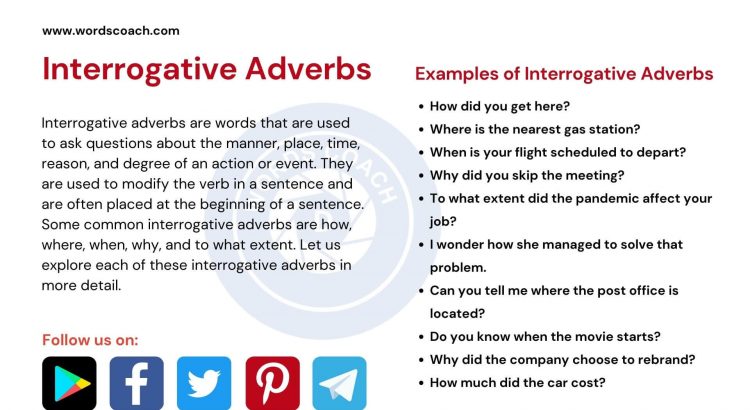
Interrogative Adverbs
Interrogative adverbs are words that are used to ask questions about the manner, place, time, reason, and degree of an action or event. They are used to modify the verb in a sentence and are often placed at the beginning of a sentence. Some common interrogative adverbs are how, where, when, why, and to what extent.
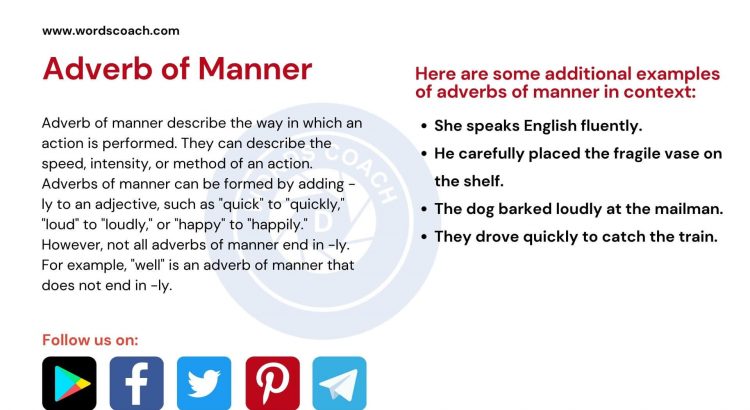
Adverb of Manner
Adverb of manner describe the way in which an action is performed. They can describe the speed, intensity, or method of an action. Adverbs of manner can be formed by adding -ly to an adjective, such as “quick” to “quickly,” “loud” to “loudly,” or “happy” to “happily.”
